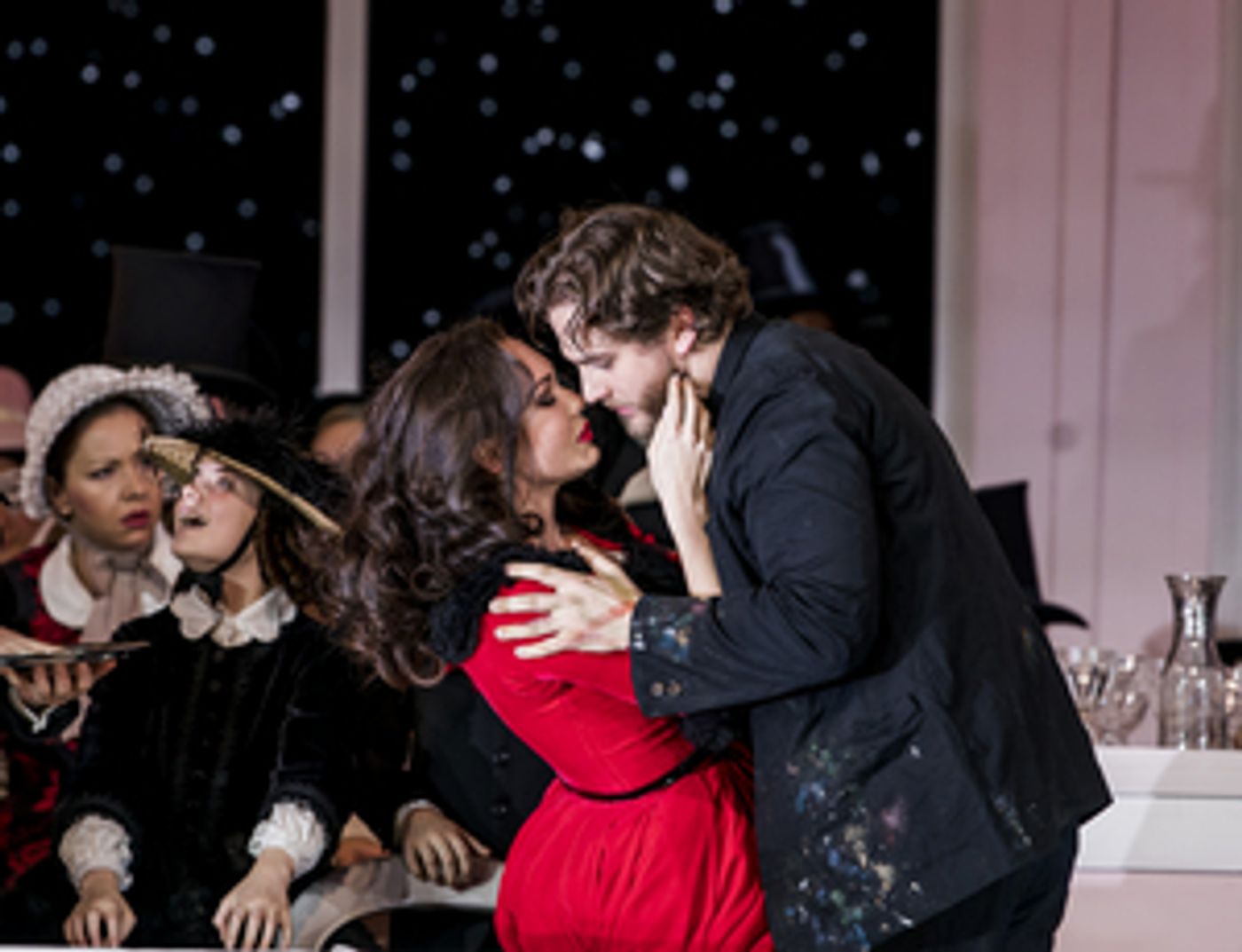Review: LA BOHEME, ROH Live

![]() On paper, the story of Puccini's La bohème veers towards sentimentality, but witnessing a live production rarely fails to stir deep emotion. Continuing their series of live screenings, Covent Garden's Royal Opera House presents a version of the opera that is both captivating and utterly heart breaking. Screening to over 1000 cinemas, across 26 countries, these are truly international events.
On paper, the story of Puccini's La bohème veers towards sentimentality, but witnessing a live production rarely fails to stir deep emotion. Continuing their series of live screenings, Covent Garden's Royal Opera House presents a version of the opera that is both captivating and utterly heart breaking. Screening to over 1000 cinemas, across 26 countries, these are truly international events.
The story follows four struggling bohemians living in penury in 19th-century Paris. One freezing Christmas Eve a girl called Mimì knocks on their door looking for a light for her candle. She and Rodolfo immediately fall in love, but in such poverty, there will be no happy endings.
Russian soprano Aida Garifullina was to make her Royal Opera House debut as a Musetta, but illness necessitated her replacement by Simona Mihai. Mihai is a wonderfully lyrical Musetta; exuberant, provocative and captivating at the start, as she stands on tables and coquettishly removes her underwear during a spirited version of "Quando m'en vo". She visibly grows up through the production, finding quiet dignity at Mimì's deathbed.
American tenor Charles Castronovo is an energetic Rodolfo, with an ease to his projection that belies the power he employs when needed.
Sonya Yoncheva is wonderfully sweet and innocent as Mimì and sings with huge emotional depth. Yoncheva and Castronovo have a delicate chemistry and show a very convincing manner of falling in love. The famous "O Soave Fanciulla" duet is as soaring and emotive as any audience could wish for.
Andrzej Filończyk is an unruly Marcello, with a richness and depth to his vocals. Gyula Nagy and Peter Kellner are both strong and characterful as Schaunard and Colline respectively. There is a great sense of cameraderie and friendship between the quartet.
What this screening reminds the audience of is how much acting there is in this opera; of course the singing is the key, but much of the atmosphere relies on the performing, which is excellent here.
Directed for the screen by Jonathan Haswell, there is a fluidity to the closeup shots, but also a good amount of time spent on wide shots to show the full width of the stage. The scenes in the Paris arcades are suitably chaotic and there are some lovely details picked up in Café Momus such as squabbling waiters and patrons outraged at Musetta's exploits.
Conductor Emmanuel Villaume ensures that the audience is drawn into Puccini's flawless score. Villaume brings huge intensity and care to the score, particularly the reprise of the strong melodies, building the intensity and emotion of the production.
This Richard Jones' 2017 production replaced the reliable John Copley version that had been running for over 40 years. This version is perfect for the big screen as it contains so much detail, much of which could be missed at the back of the Royal Opera House.
Stewart Laing's design is suitably bleak in the opening scene; the snow falls and everyone shivers in the believable cold. Café Momus of the second act looks impressive, as the set moves around the cast through the beautiful arcades of Paris to the café itself. This scene is also a riot of brightness and colour, starkly contrasted with the rest of the production. However, the Bohemian's garret is almost too stark; despite so few windows, the space is just too bright to believe that candles are even necessary.
However, this is a very balanced production, with a huge amount of comedy to contrast with the absolute heartbreak. This screening is well-directed and the result is a highly immersive evening.
Live Screenings from the Royal Opera House continue throughout the year
Photo Credit: Tristram Kenton
Reader Reviews

Videos


